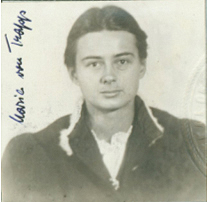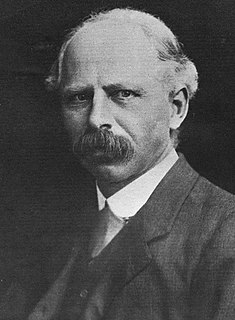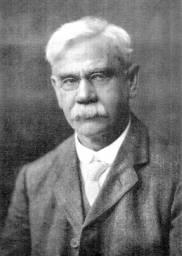A Quote by Blaise Pascal
Man is clearly made to think. It is his whole dignity and his whole merit; and his whole duty is to think as he ought. And the order of thought is to begin with ourselves, and with our Author and our end.
Related Quotes
Our Lord's miracles were all essential parts of His one consistent life. They were wrought as evidences not only of His power, but of His mercy. They were throughout moral in their character, and spiritual in the ends contemplated by them. They were in fact embodiments of His whole character; exemplars of His whole teaching, emblems of His whole mission.
If we could sufficiently understand the order of the universe, we should find that it exceeds all the desires of the wisest men, and that it is impossible to make it better than it is, not only as a whole and in general but also for ourselves in particular, if we are attached, as we ought to be, to the Author of all, not only as to the architect and efficient cause of our being, but as to our master and to the final cause, which ought to be the whole aim of our will, and which can alone make our happiness.
The grief of a child is always terrible. It is bottomless, without hope. A child has no past and no future. It just lives in the present moment - wholeheartedly. If the present moment spells disaster, the child suffers it with his whole heart, his whole soul, his whole strength, his whole little being.
The organizer of industry who thinks he has 'made' himself and his business has found a whole social system ready to his hand in skilled workers, machinery, a market, peace and order - a vast apparatus and a pervasive atmosphere, the joint creation of millions of men and scores of generations. Take away the whole social factor, and we have not Robinson Crusoe with his salvage from the wreck and his acquired knowledge, but the native savage living on roots, berries and vermin.
The average man votes below himself; he votes with half a mind or a hundredth part of one. A man ought to vote with the whole of himself, as he worships or gets married. A man ought to vote with his head and heart, his soul and stomach, his eye for faces and his ear for music; also (when sufficiently provoked) with his hands and feet. If he has ever seen a fine sunset, the crimson color of it should creep into his vote. The question is not so much whether only a minority of the electorate votes. The point is that only a minority of the voter votes.
A human being is a part of the whole called by us universe, a part limited in time and space. He experiences himself, his thoughts and feeling as something separated from the rest, a kind of optical delusion of his consciousness. This delusion is a kind of prison for us, restricting us to our personal desires and to affection for a few persons nearest to us. Our task must be to free ourselves from this prison by widening our circle of compassion to embrace all living creatures and the whole of nature in its beauty.
We are perhaps too near the age of transition to see clearly the interplay of all that made for progress. Each of us has had his own peculiar training, his own personal contact with the mighty ones of the immediate past; and this forms as it were a telescopic tube determining limits to our field of vision. No doubt we may range the whole horizon; but after all we look from our own point of vantage.
A man should not go where he cannot carry his whole sphere or society with him,Mnot bodily, the whole circle of his friends, but atmospherically. He should preserve in a new company the same attitude of mind and reality of relation, which his daily associates draw him to, else he is shorn of his best beams, and will be an orphan in the merriest club.
Prayer is the converse of the soul with God. Therein we manifest or express to Him our reverence, and love for His divine perfection, our gratitude for all His mercies, our penitence for our sins, our hope in His forgiving love, our submission to His authority, our confidence in His care, our desires for His favour, and for the providential and spiritual blessings needed for ourselves and others.
And he began to see the truth, that Ged had neither lost nor won but, naming the shadow of his death with his own name, had made himself whole: a man who, knowing his whole true self, cannot be used or possessed by any power other than himself, and whose life therefore is lived for life's sake and never in the service of ruin, or pain, or hatred, or the dark.







































